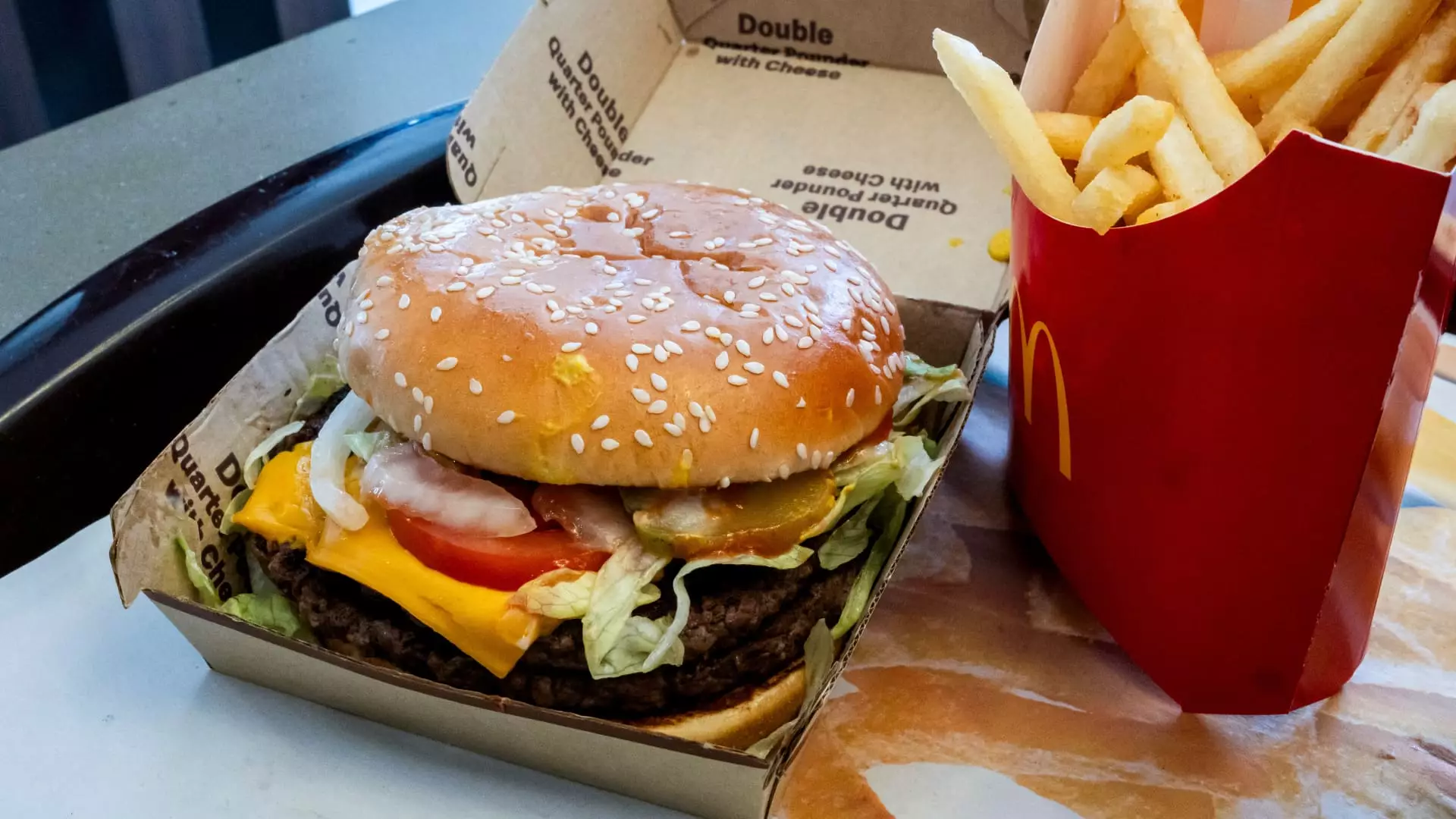In the fast-paced world of fast food, few events can disrupt operations and consumer confidence more than a foodborne illness outbreak. Recently, McDonald’s faced such a situation when its beloved Quarter Pounder burgers were implicated in a deadly E. coli outbreak that affected 75 individuals across 13 states. The outbreak, which was identified between September 27 and October 11, raised serious concerns among customers and health officials alike, resulting in the temporary removal of the burger from approximately 900 of the chain’s U.S. locations. This action reflected not only McDonald’s commitment to public safety but also highlighted the fragile balance fast-food giants must maintain between consumer cravings and health regulations.
Initial investigations pointed to slivered onions as the likely source of the E. coli contamination, particularly those supplied by Taylor Farms. This revelation prompted swift action from McDonald’s, which suspended its use of Taylor Farms onions indefinitely and sought to reassure the public that contaminated products had been purged from their supply chain. Cesar Pina, the Chief Supply Chain Officer for McDonald’s North American Operations, communicated to the company’s U.S. system that the issue appeared confined to specific ingredients and regions, instilling confidence that the fast-food chain was taking the matter seriously. Nonetheless, the connection between the Quarter Pounder and the outbreak cast a long shadow over the company’s reputation.
The health impacts from the outbreak were alarming, with 22 reported hospitalizations and one tragic death in Colorado attributed to E. coli complications. The Centers for Disease Control and Prevention (CDC) linked the restaurant chain to these significant health issues, underscoring the gravity of the situation. Such cases raise critical questions about food safety protocols and the responsibility that corporations carry in safeguarding public health. McDonald’s efforts to address these concerns included public apologies from company executives, aiming to foster goodwill among consumers who might have felt “ill, scared, or uncertain” following the outbreak. Their visible frustration and empathy towards affected individuals reveal an awareness of the need for transparency and accountability in the fast-food sector.
As health officials honed in on the source of the outbreak, McDonald’s took steps to reinstate the Quarter Pounder across its locations. However, this resurgence was not a straightforward process. Pina indicated that the return would occur gradually, depending on the restoration of safe supply lines for ingredients. As the company asked its beef suppliers to manufacture a new batch of fresh patties, logistical complexities arose, given that McDonald’s typically sells around one million Quarter Pounders in the affected region over a two-week span. Such details illustrate the intricate nature of re-initiating a product post-crisis, where consumer demand must be balanced with safety and availability.
The financial implications of the outbreak were immediately apparent, as McDonald’s shares saw a noticeable decline—down 7% since the outbreak’s linkage to the chain was announced by health authorities. Moreover, the third-quarter earnings report was impending, further heightening the stakes for McDonald’s leadership team. This decline not only reflects stock market reactions but also signals potential long-term effects on brand loyalty. The fast-food market is notoriously competitive, and recovery from reputational damage linked to public health crises can be a prolonged challenge.
The return of the Quarter Pounder symbolizes more than just the reintroduction of a beloved menu item; it underscores the challenges McDonald’s faces in maintaining public trust amid health crises. As the chain continues its investigation and preventative measures, customer sentiment remains a crucial factor. Moving forward, McDonald’s must ensure rigorous standards in food safety and transparent communication, navigating both consumer expectations and health regulations adeptly. Ultimately, the way they manage this incident could set a precedent for the fast-food industry, serving as a wake-up call about the importance of reliability and safety in a market defined by convenience and speed.



Leave a Reply